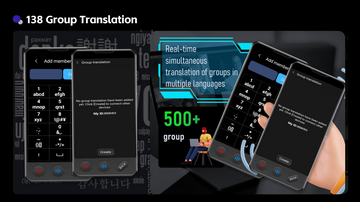The students I have taught are various: Luna, a 9-year-old girl in Shanghai, is very good at learning English, and her quick response to Spanish is really beyond my expectations; Jacinta, a college student in Hunan, studied with me for a month After switching to Spanish because of professional needs, she switched to German and returned to Spanish because of interest; Blanca, a struggling young woman working in Shanghai, is very talented in languages. She can understand everything I explain in English in seconds. I teach from scratch She, she has insisted on learning the B1 level and plans to apply for Spanish graduate students after taking the DELE B2 test; Estela, a college student in Jiangsu, used a 20-day winter vacation to finish the A2 course with me and check the basic knowledge of A1. I missed the vacancy; there is a Bank of China employee who is about to go to Mexico for a year to work, learning Spanish in order to communicate with local people in Mexico; Raúl, a student majoring in Spanish who is studying in Ningbo, asked me to take classes to take the exam before his junior year . Pass DELE B2…
Each student’s learning style and habits are also different: some students like to try to translate by themselves, and they are more proactive. They will take the initiative to translate paragraphs or articles in Chinese, English and Spanish. Summarize it yourself and write it in your notebook. What you said in the last class will be quickly reflected when you mention it again in the next class. This is a long-term study habit related to personality. It is very easy, because of my diligence, I will become more interested and confident in learning; some students like me to translate the whole article, and he takes notes, because he does not like intermittent explanations, and the instantaneous memory is not enough. I don’t remember the meaning of the new words I’ve talked about when they appear in the next second. This is because the foundation is not enough and there are too many new words. I have not remembered the words very firmly for a long time. Students read the article by themselves, mark out the new words, explain the new words first, and then translate the article together. The students read it again, and then ask students questions about key words . Such students are not very active, and they are typical Chinese students. , rely more on review and memorization after class... But I think that as long as you are interested in Spanish and are willing to spend your time studying, it is best to find the learning method that suits you best.
Let me talk about my teaching method in detail:
About vocabulary: When tres estrellas en la guía Michelin appear in the reading article, (estrella: star star, star), I will expand and explain un hotel de cinco estrellas (5-star hotel), la estrella de cine (movie star), etc. Expressions related to estrella help students understand and deepen their impressions and expand their vocabulary.
Regarding grammar : Usually I will first talk about the format of grammar, conjugation , and then usage, and then put it in the text to explain it as a review. I will search a lot of exercises on the Internet for students to do. After the explanation in class , will also assign homework to students after class, and explain it in the next class. So from easy to difficult, students will become more and more proficient in the use of grammar by substituting the explanation over and over again.
About composition : I will arrange writing for students, comment on the composition for students before each class, analyze the grammatical errors of the composition to the students, and ask the students to correct the mistakes and then show me the corrected version, which greatly improves The probability of making the same mistake next time is reduced , and the students' composition will be better and better.
About listening: Listening is a difficult point for students to learn, but it is not that difficult. After inputting a certain amount of basic knowledge to the students, the students will be given listening. From the rare and simple listening comprehension at A1 level to the listening comprehension in every class at A2 level, students need to have a process of adaptation. I usually put the listening part in the last link, as a consolidation and improvement of knowledge, because it is well known that Spanish speaks very fast, and listening is also a big difficulty, but according to my experience, students are not concerned about grammar changes. On the basis of a good grasp of the usage and usage, most of the listening comprehension can be heard. I will play it to the students 2-3 times for each listening comprehension. After checking the answers, I will listen to the students together. Stop at the specific listening position, and then play it continuously from beginning to end after explaining it once, so that students can understand the listening and will not leave the class with questions. In addition, I will also send the original text to the students And ask them to read and listen to the original text several times after class. Listening is difficult, but as long as they understand a little more each time than the previous one, it will be a great improvement.
And some little thoughts:
As a teacher, you must believe in the potential of every student. In fact, students can understand a lot by themselves. They don’t need to explain everything. They can use the tight time in class to understand and think, which can also improve their learning ability.
Different from traditional teaching methods, I will not tell students any Chinese terms, but I will tell students what Spanish terms are, and compare English grammar and words to help students understand. The advantage of this teaching is that students will learn as little as possible Disturbed by Chinese terminology, the knowledge learned is authentic Spanish, and most importantly, learned quickly and well.
Spanish original textbooks used in class

student notes

student essay draft






